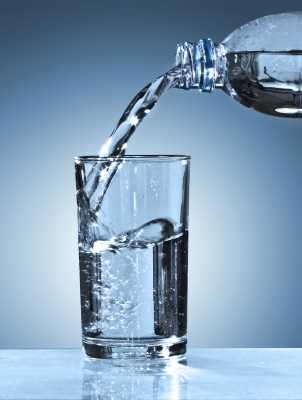STP: KSPCB Norms Puts Apartment Communities in Dilemma
Problem: KSPCB is sending notices to High Rise Apartment Complexes to disconnect their Sewage discharge to BWSSB sewage lines or face punitive action.
Impact:
- Install STP with 100% water Recycling (a near Impossible and costly Solution)
- KSPCB will disconnect water, sewage and electricity to the apartment and also levy penalty
- Polluting the environment is an offense. Association Committee/Residents can be arrested
Parties Involved:
- KSPCB (Karnataka State Pollution Control Board): Imposes laws/Regulations for Pollution control on Apartments/Residential Communities to adhere to.
- BWSSB : Is paid to connect sewage disposal lines to BWSSB sewage lines
- Apartment Residents & Association: Runs/Maintains the apartment and ensures STP (Sewage Treatment Plant) works efficiently to treat the waste water before reuse and disposal.
Below is the analysis of the situation by Dr.Ananth, a leading expert on Sewage Treatment.
Background
The Karnataka State Pollution Control Board has been imposing for several years now a condition in the consent granted to High Rise Residential Apartment Complexes (commercial complexes and industrial units as well, for that matter) that treated Domestic Sewage form the Sewage Treatment Plants of these complexes be fully utilized within the premises/ campus itself and that not a single drop of water may be discharged out of the premises.
This is in contravention to the provisions of the Environment Protection Act and Rules, which permit disposal of treated water of a specified quality into inland surface waters such as rivers, lakes, nallahs etc.( 20/30 standards i.e. 20 mg/L BOD and 30 mg/L TSS in treated domestic sewage)
The above “Zero Discharge” condition notwithstanding, the KSPCB also imposes more stringent conditions on quality of treated water from the STP’s: more stringent than even the 20/30 standards prescribed by the Act and Rules as stated above. For quick reference and comparison the two standards are juxtaposed in the table below:
| Parameter / standards | PREVIOUS STDS |
NEW URBAN REUSE STDS |
REMARKS |
| pH | 6.5-8.5 | 6.0 -9.0 | |
| BOD | < 20 | < 10 | |
| TSS | < 30 | Not specified | |
| O&G | <10 | Not specified | |
| Turbidity | Not specified | < 2 NTU | Akin to TSS |
| E. Coli | Not specified | NIL | |
| Res. Cl | Not specified | > 1 PPM | |
| All Units except pH and NTU in mg/L | |||
Therefore, with such stringent quality standards, it is not readily understood, why the KSPCB should impose the Zero Discharge condition for High Rise Apt. complexes: There are very valid technical and practical reasons to withdraw this impossible condition:
Technically and Practically Impossible To Reuse 100% Water
The various reuse options available for treated water reuse in High rise residential apartment complexes are:
a. Toilets flushing
b. Irrigation Use on gardens and lawns
c. Car wash
There are no other additional feasible reuse options for treated water from STP (except Recharging Rainwater percolation pits – which I will address at the end of this note)
A look at the numbers involved in a typical water balance for a 250 unit Apartment complex will be illuminating:
Water and Wastewater
- Number of Apartments : 250
- Number of Souls : 1000 – 1200
- Per Capita Water Consumption : 150 L
- Total Water consumption : 180 KLD
- Approx. Wastewater generation: 160 KLD
- Approx. Number of Cars : 250
All Possible Treated Water Uses
- Toilets flushing @ 40 LPCD : 48 KLD
- Irrigation on green area : 60 KLD (For approx. 2 Acres lawns and green area)
- Car wash @ 30 L per car : 8 KLD
- TOTAL REUSE : 116 KLD
Therefore there will be approx. 44 KLD of treated water which perforce has to be disposed off, amounting to approx. 25-30 % of treated water generated from the STP.
Our experience from operating STP’s in over 15 High rise complexes with number of units varying from 150 to 1200 Flats, indicate that the approximate percentage of treated water required to be disposed off varies between 25 to 40 %.
Treated Water is Good For Lakes Rejuvenation
If the KSPCB should permit disposal of excess treated water meeting the quality standards as prescribed, the treated water will find its way into water bodies in and around Bangalore such as lakes and “Keres”, which are presently dry, thereby restoring these water bodies. When water bodies are thus restored, they may be leased out for recreational purposes, the lessee being mandated to maintain these bodies free of unwanted vegetative growth. This will also ensure that dry lake and tank beds are not usurped by the land grab mafia of this city.
After all, even the Env. Protection Act, permits disposal of treated water of even lesser quality to be disposed off into lakes and rivers!
KSPCB Must Permit Use of Treated Water for Ground Water Recharge
The KPSB at present does not permit treated water to be reused for ground water recharge through percolation pits, fearing contamination of ground water. This is a totally misguided notion, neither supported nor validated by facts and data.
I am attaching herewith ANNEXURE 1, where the USEPA (United States Environment Protection Agency) after due reconsideration of ground realities and practical aspects, revised the disposal criteria of treated water in Underground injection wells. This Final Ruling by the USEPA permits disposal of treated water of quality 25 mg/L BOD and 30 mg/L TSS to be injected into wells even though they may be connected to Underground Sources of Drinking Water (USDW). It is very illuminating to read the entire proceedings in respect of this new Rule, promulgated by USEPA after due deliberations, appraisal of various other technical alternatives, cost considerations, and due consultations with the affected parties and general public. KSPCB will do well to follow such a procedure, before imposing conditions which are technically untenable and indeed practically impossible to meet.
Conclusion
It is our belief that after careful consideration of scientific and technical facts, and with due regard to practical ground realities, the condition of “Zero Discharge” imposed by the KSPCB needs to be relaxed to prevent unnecessary harassment of law abiding citizens by unscrupulous elements in the neighborhood of the residential complexes and even beyond.
This situation is very grim and unless associations unite and do something about it, chances of getting out of this are very narrow.
Also read here the analysis of a committee member on how this impacts his community.
Useful Links & Documents
- Show cause notice by KPSB
- Env. Protection Rules, Schedule VI page 1
- Env. Protection Rules, Schedule VI page 2
- Env. Protection Rules, Schedule VI page 3
Thanks to Dr. Ananth for contributing article to commonfloor.com Dr. Ananth S. Kodavasal is Director of Ecotech Engineering Consultancy Pvt. Ltd, Whitefield, Bangalore.







